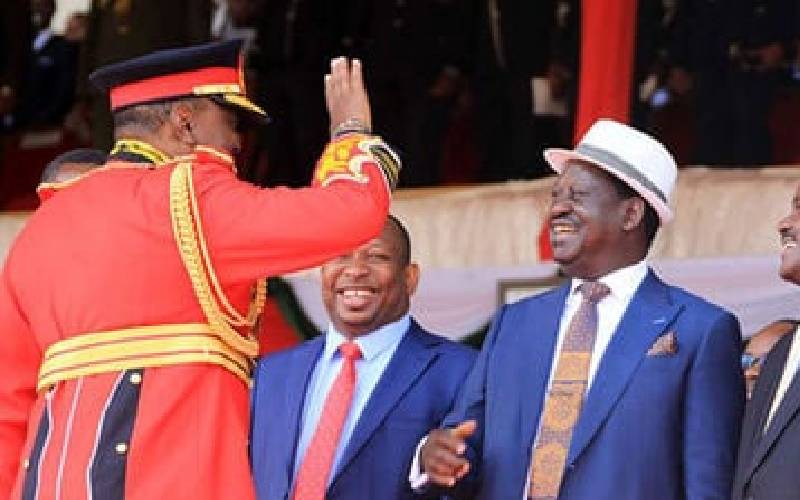×
The Standard e-Paper
Kenya’s Boldest Voice

President Uhuru Kenyatta salutes ODM leader Raila Odinga during Jamuhuri Day celebrations at Uhuru Gardens.
A few years ago, as head of a business council, I accompanied my chairman to a meeting with the ambassador of a trading-partner nation. The purpose of our call was to smooth ruffled feathers. Apparently, a diplomatic gaffe had occurred earlier when a member of our organisation had failed to recognise the ambassador. Contrary to protocol they had also seated him among the rank and file.